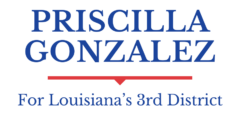The Protecting Medicare and American Farmers from Sequester Cuts Act (S. 610) seeks to address impending Medicare payment cuts while also providing financial aid to American farmers. The measure has several essential provisions:
- Medicare Sequester Cuts:
- Delay of Cuts: Temporarily delays the automatic Medicare payment cuts (sequester cuts) that were set to take effect, providing stability and continued access to care for Medicare beneficiaries.
- Adjustment of Payment Rates: Adjusts payment rates for Medicare services to ensure healthcare providers are adequately compensated and can continue delivering necessary care.
- Support for Farmers:
- Financial Relief: Provides financial support to American farmers to help mitigate the economic impact of the COVID-19 pandemic and other challenges affecting the agricultural sector.
- Debt Relief and Assistance: Includes provisions for debt relief and other forms of assistance to support the agricultural industry.
- Healthcare Provider Support:
- Protection for Healthcare Providers: Ensures that healthcare providers do not face significant financial hardship due to reduced Medicare payments, enabling them to continue offering essential services to patients.
Impact of Voting Against the Bill
Voting against the Protecting Medicare and American Farmers from Sequester Cuts Act, as Clay Higgins did, can be seen as highly detrimental for several reasons:
- Healthcare Access for Seniors:
- Risk to Medicare Beneficiaries: Opposing the bill means endorsing automatic cuts to Medicare payments, which can lead to reduced access to healthcare services for seniors. This can result in longer wait times, fewer available services, and potential closures of healthcare facilities that rely on Medicare funding.
- Financial Stability for Healthcare Providers:
- Provider Hardship: The bill aims to protect healthcare providers from financial instability due to reduced Medicare payments. Voting against it can cause financial strain on hospitals, clinics, and doctors, potentially leading to reduced quality of care and staff layoffs.
- Support for Farmers:
- Economic Impact on Agriculture: The bill provides critical financial relief to farmers struggling with the economic impacts of the COVID-19 pandemic and other challenges. Voting against it means denying support to a vital sector of the American economy, potentially leading to increased farm closures and financial distress for farming families.
- Overall Economic Stability:
- Broad Economic Implications: By providing support to both healthcare providers and farmers, the bill aims to stabilize key sectors of the economy. Opposing the bill can lead to broader economic instability, affecting not just healthcare and agriculture but also the communities and industries connected to these sectors.
Clay Higgins’ vote against the Protecting Medicare and American Farmers from Sequester Cuts Act represents a rejection of critical financial protections for Medicare recipients, healthcare providers, and American farmers. This decision has the potential to have far-reaching negative consequences, compromising senior healthcare access, financial stability for healthcare providers, and economic support for agriculture.
